Reply To:
Name - Reply Comment
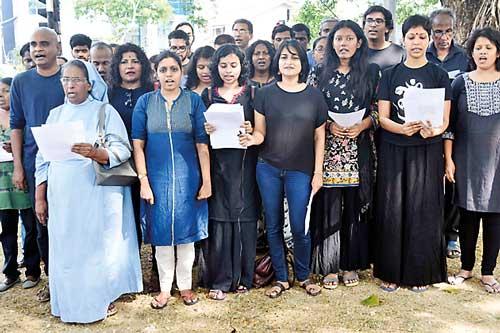
When the Gotabhaya Rajapaksa Government announced the National Anthem would be sung in ‘Sinhala Only’ at the 72nd Independence Day celebrations, the public received it with varied reactions. 
While it evoked a smile from certain Sinhala-Buddhist elements, those standing in solidarity with minorities, especially the Tamil community, frowned upon the decision. Keeping this in mind, a group of activists gathered at the Kanatte Roundabout Borella yesterday to sing the National Anthem in both Sinhala and Tamil and pledged their solidarity to the Tamil community while showing their disagreement to the Government position.Speaking to the , a few participants shared their thoughts as follows:
Policy Destroyed Us
“A group of us citizens, got together to organise this event to sing the National Anthem in both our official languages, Sinhala and Tamil, on Independence Day, in protest against the Governments announcement to sing the National Anthem in Sinhala only at the official Independence Day function held earlier today. 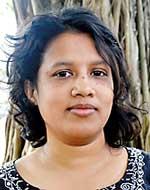
“Whilst we fully recognise the grievances of the Tamil-speaking people of Sri Lanka are by no means limited to the language issue, history has shown us how Sinhala Only Polices have destroyed our country and been a root cause of our three-decade-long ethnic conflict, which to date remains unresolved. We believe in an equal and free Sri Lanka, and will continue our struggle for equality and justice for all those subject to systematic oppression by the State, in this country.” - Marisa de Silva, activist and co-organiser of the event.
Constitution
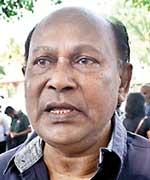 “A country’s Independence Day is a unique occasion for every citizen in the country. The National Anthem symbolises this significant occasion. The constitution also states that the National Anthem could be sung in both Sinhala and Tamil. But the Gotabhaya Rajapaksa regime pledged that the Tamil-speaking community cannot sing the National Anthem in their mother tongue. The Government also didn’t take a firm stance on whether it should be sung at the Independence Day celebration or not. Therefore we gathered here today to sing it in both languages and stand in solidarity with the Tamil population of the country.” – Siritunga Jayasuriya, United Socialist Party
“A country’s Independence Day is a unique occasion for every citizen in the country. The National Anthem symbolises this significant occasion. The constitution also states that the National Anthem could be sung in both Sinhala and Tamil. But the Gotabhaya Rajapaksa regime pledged that the Tamil-speaking community cannot sing the National Anthem in their mother tongue. The Government also didn’t take a firm stance on whether it should be sung at the Independence Day celebration or not. Therefore we gathered here today to sing it in both languages and stand in solidarity with the Tamil population of the country.” – Siritunga Jayasuriya, United Socialist Party
People Divided 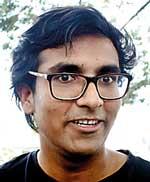
“I came today as a citizen of this country since we were concerned about the statement made by the Government that the National Anthem would only be sung in Sinhala at the Independence Day celebration. I believe that if one group of citizens cannot sing the National Anthem, then I don’t think anyone of us can sing it. Our country’s history is such that our people have been divided over language. We have fought conflicts and encountered so many riots. What’s important for me is not a song or a flag. But we should be able to sing together, be it a National Anthem or any other song, and we got together to show our love towards the Tamil population in the country.” – Senel Wanniarachchi, Co-founder Hashtag Generation
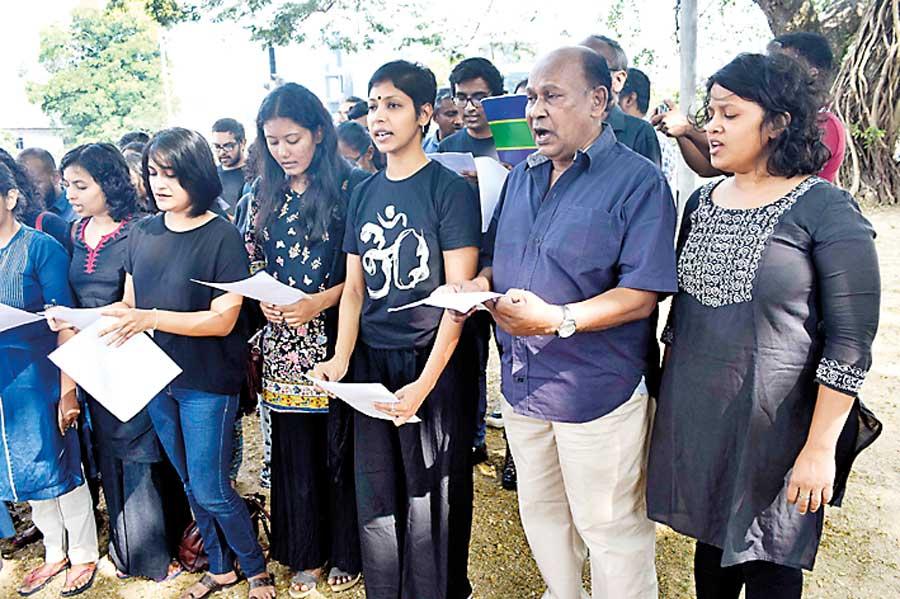
Meaning of Anthem 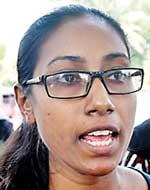
“Some people don’t understand the meaning of a National Anthem. This is why I decided to join this group, sing the National Anthem in both languages and pledging our support towards the Tamil community.” – Shanika Silva, Attorney-at-law representing The New Wings youth organisation
It is a symbolic decision
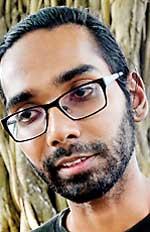 “The idea that the Tamil-speaking community has about the country is not the same as that of the Sinhala people.
“The idea that the Tamil-speaking community has about the country is not the same as that of the Sinhala people.
Therefore it is a symbolic decision to come here and show our disagreement with the government’s decision and stand in solidarity with the Tamil community, who are equal citizens of this country.”
– Pasan Jayasinghe, Researcher
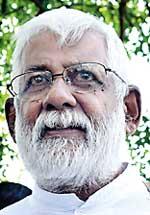
Pluralistic country
“There are some elements that don’t approve the singing of the National Anthem in Tamil.
We are a pluralistic country, and the sign of a mature society is that we should be able to respect and protect the identities of other ethnic groups.”
– Fr. Sarath Iddamalgoda
Pics by Nimalsiri Edirisinghe